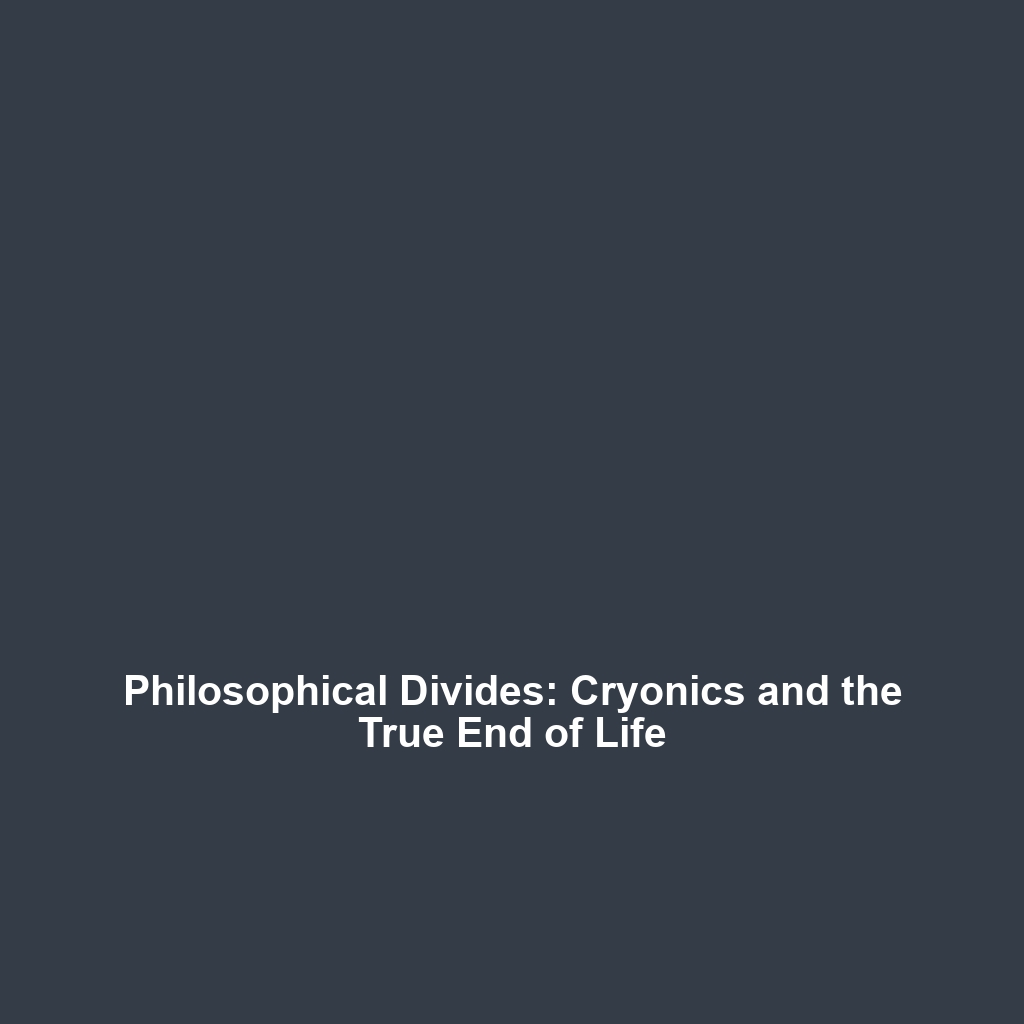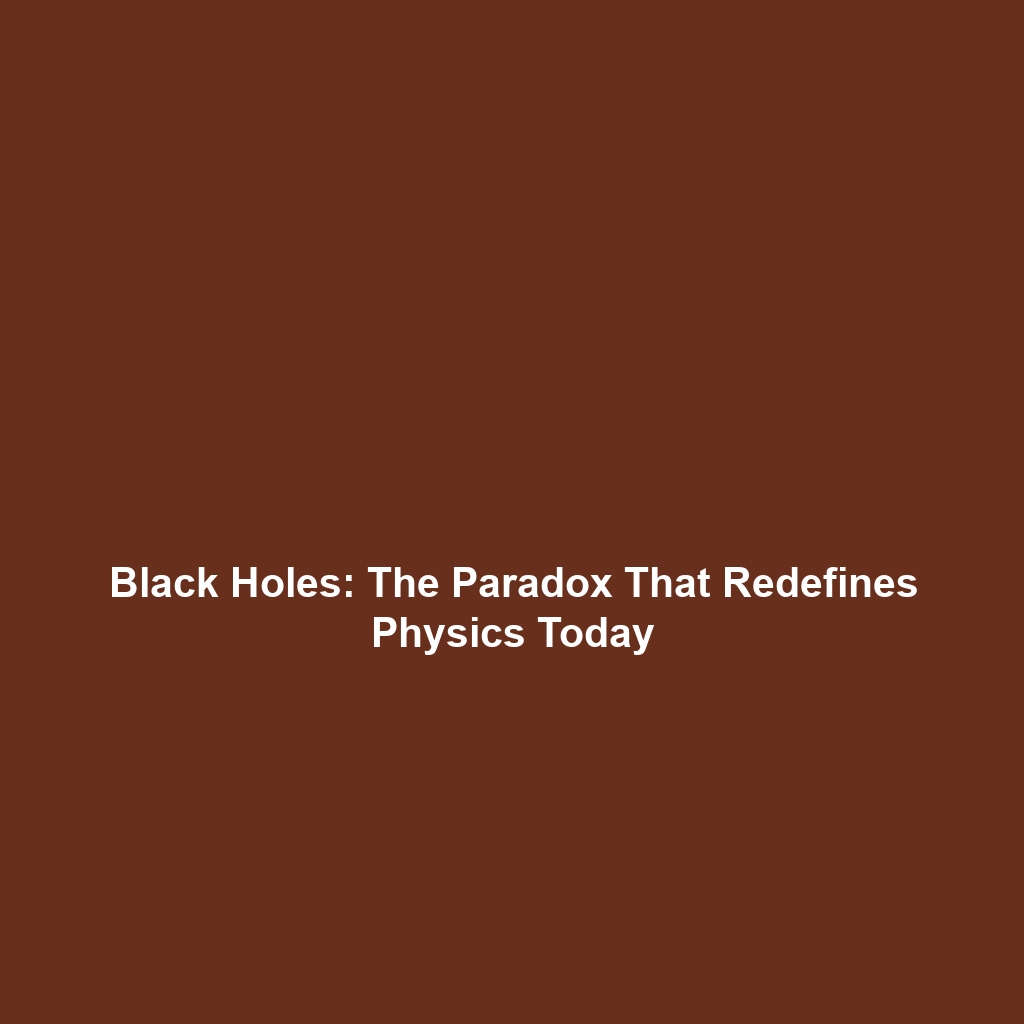<>
Philosophical Debates: Raising Questions about Life and Death in Cryonics
Introduction
The field of cryonics and life extension has long been surrounded by profound philosophical debates, particularly concerning the preservation of legally dead individuals. Critics argue that such practices may not guarantee revival, igniting discussions about critical questions: When does life truly end? These discussions hold significant weight in considering the implications of freezing individuals for potential future revival. The intersection of philosophy, ethics, and science raises essential considerations that could redefine our understanding of life and death as we look to innovate in the field of cryonics.
Key Concepts
Legal Definitions and Medical Perspectives
In understanding the philosophical debates surrounding cryonics, it’s crucial to explore:
- Legal Definitions of Death: Legal death is often defined as the irreversible cessation of all biological functions that sustain life. However, this definition varies by jurisdiction.
- Medical Perspectives: Some medical professionals argue that the criteria for determining death could evolve with advancements in technology, potentially challenging current definitions.
Philosophical Implications
The concept of preserving legally dead individuals goes beyond technicalities to question the essence of life and existence. Critics of cryonics assert:
- The Uncertainty of Revival: No current technology guarantees that a preserved individual could be revived with their consciousness intact.
- Existential Questions: Philosophers debate whether a revived individual would be the same person or merely a copy of the original.
Applications and Real-World Uses
Understanding the philosophical implications helps highlight the various applications of cryonics in life extension. Some noteworthy aspects include:
- Preservation Techniques: Current techniques involve the cryopreservation of cells and tissues, providing insight into potential future applications.
- Scientific Research: Ongoing studies on tissue viability play a role in enhancing the likelihood of successful revival after being cryogenically frozen.
Current Challenges
The pursuit of answers regarding the preservation of legally dead individuals faces several challenges:
- Ethical Concerns: The moral implications of reviving an individual who has been legally declared dead create significant discourse.
- Scientific Limitations: Current technology does not ensure successful revival, raising questions about wasting resources and legal ramifications.
- Public Perception: Widespread skepticism about cryonics complicates funding and research opportunities.
Future Research and Innovations
Looking ahead, the field of cryonics is on the brink of exciting developments that could change our understanding of life:
- Advancements in Biopreservation: Research into novel cryoprotectants may improve preservation techniques.
- Neuroscience Breakthroughs: Understanding the brain’s intricacies may open doors for approaches to revive memory and personality upon restoration.
Conclusion
The discussions surrounding philosophical debates about the preservation of legally dead individuals provoke essential questions about life and death in the realm of cryonics. As we navigate these complex issues, it is vital for researchers, ethicists, and the public to engage in thoughtful dialogue. To stay informed about future developments in cryonics and life extension, explore our other resources detailing the latest advancements in this groundbreaking field.

